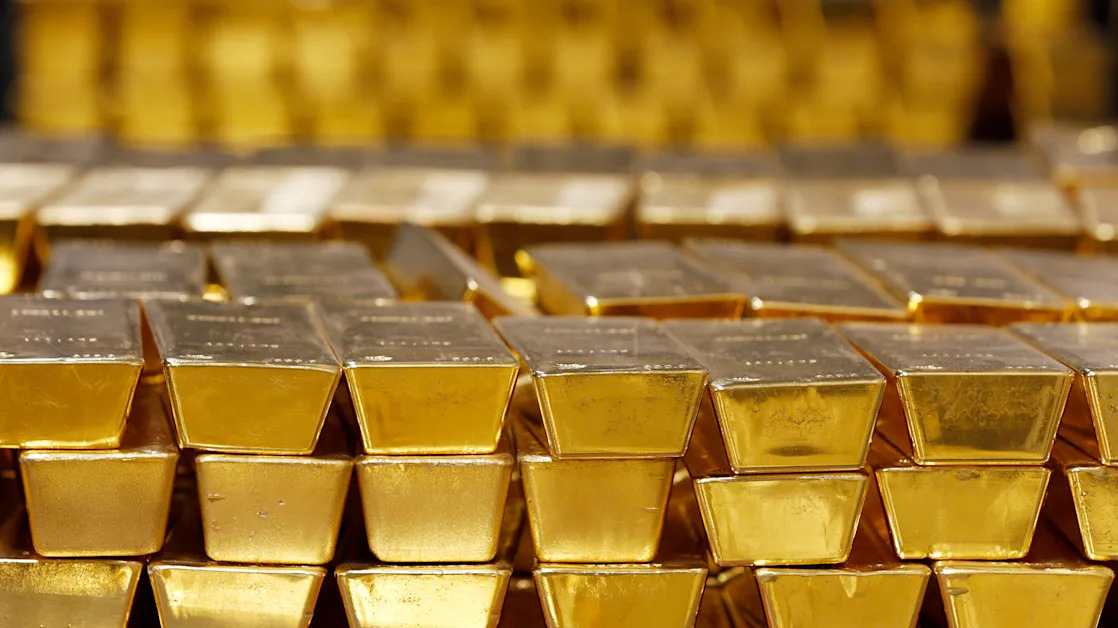(Bloomberg) -- Canada’s energy patch may have temporarily dodged disaster in the trade war with the US, with President Donald Trump’s orders taxing crude at a lower rate and possibly letting producers avoid levies altogether on some shipments.
The 10% tariff on US imports of Canadian energy is less than half the 25% rate the industry had braced for, a move White House officials said was meant to limit increases in gasoline and heating oil prices. The wording of the order also leads some analysts to believe Canadian producers won’t be taxed on shipments that simply pass through the US, allowing them to export significant volumes off the Gulf Coast without penalty.
“At 10%, pricing offsets are more manageable, and likely will not require a significant overhaul to physical flows,” RBC analysts including Helima Croft said in a note.
A US Midwestern coking refinery could still achieve the same level of profitability it had before the tariffs if refined product pricing rises by 4%-6% while Canadian heavy crude’s discount to US benchmark oil widen to $14-$16 per barrel, RBC also said.
Still, the tariffs threaten to disrupt a North American energy market that has been highly integrated for decades. Canada sends nearly all its roughly 4 million barrels a day of oil exports to the US, making it America’s largest foreign source of crude.
American refiners benefit from the steady flows of relatively cheap, heavy Canadian crude that can be turned into fuel more profitably than the light oil produced domestically. The US Midwest, home to 23% of the country’s refining capacity, is particularly reliant on Canadian supplies shipped via pipeline and has limited ways to access alternatives.
The hit to light crude grades from Canada’s top oil-producing province of Alberta may also be substantial because they compete with abundant US supplies of similar oil. Nearly half of Alberta’s oil is either light, conventional crude or oil sands bitumen that has been upgraded into light synthetic oil. The discount for light Canadian grades may widen by $7 a barrel, said Susan Bell, a Rystad Energy analyst. The discount on synthetic crude is currently at $3.50 a barrel.
However, Trump’s executive order says the duties “shall apply with respect to goods entered for consumption,” potentially exempting Canadian oil that crosses the US and is exported off the Gulf or that transits the US en route to refiners in Ontario and Quebec.
The “working assumption” is that crude destined for the Gulf won’t be subject to tariffs, Eric Nuttall, a partner and senior portfolio manager at Ninepoint Partners in Toronto, said in an email. “But that may require legal interpretation.”
About 300,000 barrels a day of oil could be sent to the Gulf for re-export, Dan Tsubouchi, chief market strategist at SAF Group, said in a note.
Canada has another partial shield against the tariffs: the newly expanded Trans Mountain pipeline running from Alberta to a marine terminal near Vancouver. The expanded line, which started operation in May, is underused because of its expensive tolls.
About 180,000 barrels of oil a day could be diverted from the US for shipment off the West Coast to non-US markets, Bell said. The drop in exports to the US means that West Texas Intermediate crude could strengthen by about a $1 a barrel versus international benchmark Brent, she said.
Canada is responding to the US levies with 25% counter-tariffs on C$155 billion ($107 billion) of American-made products. Prime Minister Justin Trudeau didn’t specifically rule out measures such as taxing or restricting energy exports to the US, but said no one industry or region should bear an undue burden of Canada’s response.
Since Trudeau isn’t signaling any export tax on crude, total flows out of Canada probably won’t change, Nuttall said.
Still, the tariffs could slow economic growth, reducing oil demand and making it less likely that OPEC+ will increase supplies to the world market as it had planned, backfiring on Trump’s push to have the cartel boost output to lower prices, Nuttall said.
--With assistance from Yongchang Chin and Weilun Soon.
(Updates with comments from RBC in third and fourth paragraph.)





